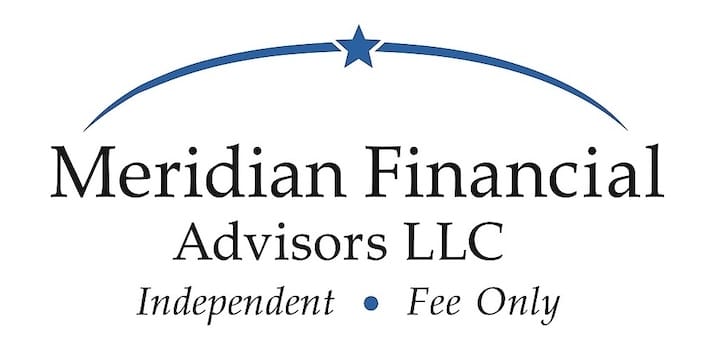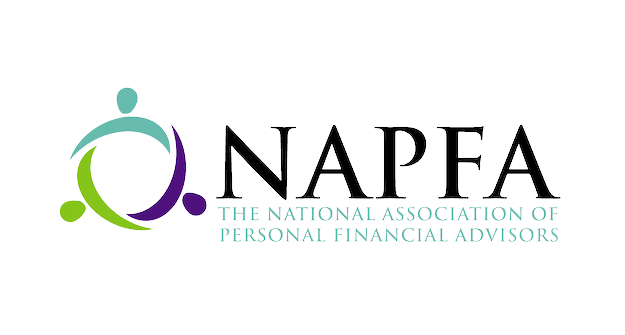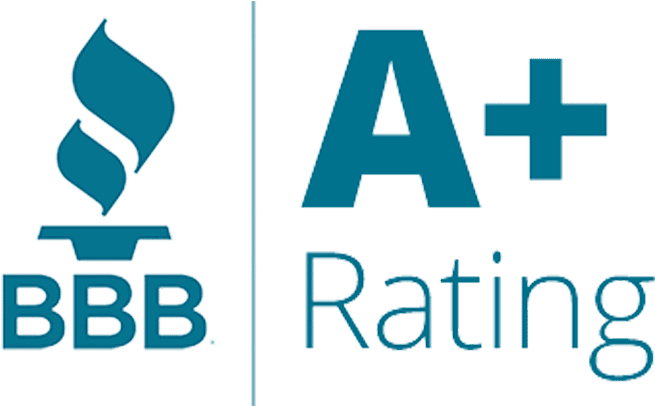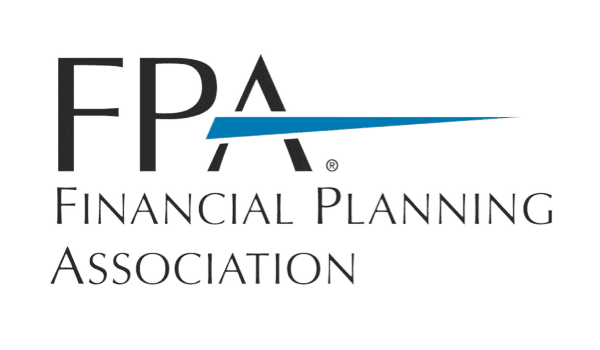NAPFA Advisor
What is NAPFA and Why Should I Choose A NAPFA Advisor?
As members of the National Association of Personal Financial Advisors (NAPFA), we have specifically chosen to align ourselves with the fee-only fiduciary service model because we believe it is the best model for financial advisors to serve their clients.
While the fee-only model of service may not be as lucrative as accepting kickbacks and commissions for recommending particular financial products, it does ensure that advisors avoid or disclose any potential conflicts of interest. It also imposes a fiduciary standard of care, which is significantly more stringent than the “suitability” standard required of commission-based advisors.
NAPFA takes the fee-only, fiduciary standard very seriously, requiring members to take a fiduciary oath on top of their regular legal requirement. The organization also imposes strict professional development and continuing education requirements as well as a comprehensive consumer-focused Code of Ethics.
What is NAPFA?
NAPFA, the National Association of Personal Financial Advisors, is an organization through which fee-only financial planners can further enhance their professional skills, market their services, and become part of a collective, influential voice on matters that affect them and their clients. Founded in 1983, NAPFA currently has more than 2,400 members nationwide, all of whom are fiduciary advisors.
Why Should I Choose a NAPFA Advisor?
A NAPFA-registered financial advisor is a fee-only financial planner that adheres to the industry’s most demanding practice requirements, including fee-only compensation and a commitment to a comprehensive, holistic approach to financial planning. NAPFA advisors must prove competence in financial planning matters and provide a high level of care and responsibility to each client.
What is a Fee-Only Financial Planner?
A fee-only financial planner is compensated solely by the client and receives no compensation that is contingent on the purchase or sale of a financial product. A NAPFA advisor or affiliate may not receive commissions, rebates, finder’s fees, bonuses, or any form of compensation from others as a result of a client’s implementation of the individual’s planning recommendations. Fee-only financial advice is important because a financial planner who has a financial stake in the course of action that he/she recommends to a client faces an inherent conflict of interest and cannot be considered objective and unbiased.
What is a Fiduciary?
A fiduciary generally refers to a person or institution who owes to another the duties of good faith and trust. Under US law, a fiduciary must always act in the best interests of the person to whom he owes this duty of care (the "beneficiary").
A fiduciary must not put his own interests ahead of the interests of the beneficiary, and must not receive any type of compensation that could create a conflict of interest.
The term fiduciary has a specific legal meaning in the United States, and generally includes financial planners who are Registered Investment Advisors (RIAs). RIAs are held to a fiduciary standard under the Investment Advisers Act of 1940, which requires them to always act in the best interests of their clients.
What is the fiduciary oath taken by NAPFA Advisors?
The fiduciary oath taken by NAPFA-registered personal financial advisors means the advisor shall exercise his/her best efforts to act in good faith and in the best interests of the client. The advisor shall provide written disclosure to the client prior to the engagement of the advisor, and thereafter throughout the term of the engagement, of any conflicts of interest, which will or reasonably may compromise the impartiality or independence of the advisor. The NAPFA fee-only financial planner, or any part in which the advisor has a financial interest, shall not receive any compensation or other remuneration that is contingent on any client’s purchase or sale of a financial product. The NAPFA fee-only planner does not receive a fee or other compensation from another party based on the referral of a client or the client’s business.
What is NAPFA's Code of Ethics?
Objectivity: NAPFA members strive to be as unbiased as possible in providing advice to clients, and NAPFA members practice on a Fee-Only basis.
Confidentiality: NAPFA members shall keep all client data private, unless authorization is received from the client to share it. NAPFA members shall treat all documents with care and take care when disposing of them. Relations with clients shall be kept private.
Competence: NAPFA members shall strive to maintain a high level of knowledge and ability. Members shall attain continuing education at least at the minimum level required by NAPFA. Members shall not provide advice in areas where they are not capable.
Fairness & Suitability: Dealings and recommendations with clients will always be in the client’s best interests. NAPFA members put their clients first.
Integrity & Honesty: NAPFA members will endeavor to always take the high road and to be ever mindful of the potential for misunderstanding that can accrue in normal human interactions. NAPFA members will be diligent to keep actions and reactions so far aboveboard that a thinking client or other professional would not doubt intentions. In all actions, NAPFA members should be mindful that in addition to serving our clients, we are about the business of building a profession, and our actions should reflect this.
Regulatory Compliance: NAPFA members will strive to maintain conformity with legal regulations.
Full Disclosure: NAPFA members shall fully describe method of compensation and potential conflicts of interest to clients and also specify the total cost of investments.
Professionalism: NAPFA members shall conduct themselves in a way that would be a credit to NAPFA at all times. NAPFA membership involves integrity, honest treatment of clients, and treating people with respect.
How does NAPFA ensure NAPFA advisors’ competence in providing fee-only financial advice?
Currently, the field of financial planning has numerous certification programs that show that a person has been trained in certain relevant subject areas, but it does not yet have a broadly accepted definition of superior quality. NAPFA is doing its part to ensure those professionals calling themselves NAPFA-registered financial advisors are meeting high competence levels. In fact, NAPFA’s requirements exceed those of any other financial industry association.
Along with requiring one of the basic educational certifications, NAPFA-registered personal financial advisors must submit a financial plan for peer review and complete continuing education in six subject areas every two years. Additionally, the advisor’s government-mandated disclosure document (Form ADV) must be reviewed annually. Also, NAPFA advisors must sign and abide by the NAPFA Fiduciary Oath, a commitment to working solely in the client’s best interest at all times.
NAPFA developed the fiduciary oath as a service to consumers and has made it available to the public for use with any financial planner whether or not the planner is a NAPFA-registered personal financial advisor.
What is a holistic approach to financial planning and how do NAPFA advisors provide holistic fee-only financial advice?
NAPFA-registered personal financial advisors must not only provide fee-only financial planning advice, but also holistic financial planning services to those they serve. This means that rather than focusing on investments in general and stocks in particular — a trend encouraged and reinforced by the fact that most providers of financial advice benefit from the sale of financial products — NAPFA advisors must focus on all factors that comprise the investor’s unique financial situation.
If a financial planner doesn’t understand the client’s full picture, the quality of advice in any one area, including investment advice, can suffer significantly. Competent and informed investment decisions must take into account all the other factors that comprise an investor’s financial profile, including tax, estate planning, insurance, risk tolerance, specific family circumstances, and ultimate financial goals. A financial plan built holistically includes much more than investment advice. It is an all-purpose tool that enables the financial planner and client, working together, to make better financial decisions because each individual decision is made within the context of the full picture.
NAPFA-registered personal financial advisors practice truly holistic financial planning to ensure their clients’ entire financial picture is taken into account.
Here is a document from NAPFA to help explain the importance of holistic financial planning.
What is NAPFA's vision for financial planning?
Why is a NAPFA advisor best for many people?
There are many reasons why working with a NAPFA-registered financial advisor is in the best interests of most consumers. Here are some of the most important:
A NAPFA-registered financial advisor has completed an approved financial planning program, which has trained him or her to provide holistic financial planning services.
A NAPFA-registered financial advisor adheres to the NAPFA fiduciary oath, which requires the advisor to always act in the best interests of the client.
A NAPFA-registered financial advisor abides by the NAPFA Fee-Only Standard and therefore cannot earn any commissions on product sales.
A NAPFA-registered financial advisor understands the importance of holistic financial planning, which involves all aspects of a client’s financial situation, from investments to taxes to insurance to estate planning.
A NAPFA-registered financial advisor is a competent financial advisor who is held accountable and must comply with NAPFA’s continuing education requirements every two years.
A NAPFA-registered financial advisor is listed on the NAPFA website, which is a directory that allows consumers to find advisors in their geographic area who meet NAPFA’s high standards.
Contact us for a free, no-obligation initial consultation to see if we’re a good fit.







